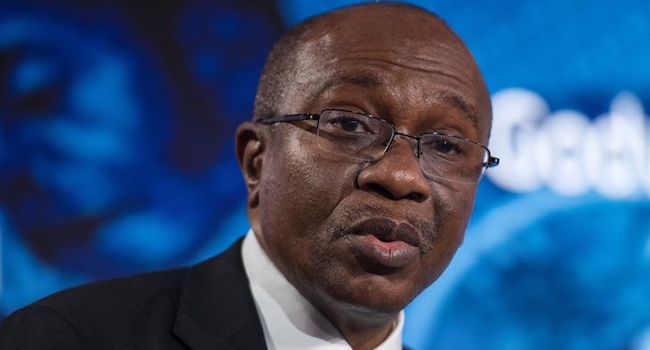Business
PSB: Has Emefiele handed future of banks to Fintechs, Telcos?

MTN Nigeria and Airtel have both secured approval in principle for Payment Service Bank (PSB) license from the Central Bank of Nigeria (CBN) – but this doesn’t portend well for Nigerian banks.
The two telecoms firms will join 9 PSB Ltd, Hope PSB Ltd, and Moneymaster PSB Ltd to offer high-volume low-value transactions in remittance services, micro-savings and withdrawal services.
Also, they are meant to accept deposits from individuals and small businesses only, to sell foreign currencies realized from inbound cross-border personal remittances to authorized foreign exchange dealers.
Other permissible business includes issuing of debit and pre-paid cards on its name; invest in Federal Government of Nigeria and CBN securities, amongst others.
However, they are restricted from providing loans, advances and guarantees to their customers, accepting foreign currency as deposit or investing in foreign securities (capital market).
What it cost MTN and Airtel to secure license
Ripples Nigeria understands that Airtel and MTN paid non-refundable N500,000 each to secure the approval in principle from Godwin Emefiele-led central bank.
In the next six months, they are expected to pay another non-refundable N2 million for the license to commence operation, and will be charged N1 million in case they decide to change their names which must reflect PSB.
Also, Airtel, MTN and other PSBs are mandated to have minimum capital of N5 billion before they can obtain the license to operate from CBN.
What MTN, Airtel PSB business means for banks – another M-PESA era in Nigeria
In the last nine years, one question keeps popping up, “do we still need banks?”, considering the way the industry is being ripped apart bit by bit as non-financial sectors take advantage of the CBN’s bid to drive financial inclusion up to 80 percent.
This ambition by the apex bank has dropped the entry barrier into the financial industry, opening the door to some sectors to come milk from the very cow that bankers dine from.
First, it was the microfinance banks that found themselves a seat, then the Agent Banking and Mobile Money Operation (MMO) joined the table; giving businesses like retailers, cyber cafes, filling stations, mom and pop stores, and roadside kiosk to profit from the financial market.
Now the telecoms are close to receiving the green light to compete in the same market. While it might look like MTN and Airtel are late to the party, the first-mover advantage might not work against them.
While the telcos have been prohibited against using their names on their PSB brand identity, the network providers are free to make available, their customer base, to their digital money subsidiary.
This means Smartcash and MoMo will be tapping into the 73.5 million and 51.03 million subscribers both MTN and Airtel have respectively, against the 72.9 million active accounts in bank network, according to NIBSS.
And if the success of M-PESA [owned by Vodafone Group and Safaricom] in Kenya is to go by, banks and even Mobile Money Operations (MMO) are at a competitive disadvantage.
Although telcos are mandated by CBN PSB guidelines to provide their infrastructure to PSB market rivals.
However, Nigerians witnessed the faceoff between banks and network providers in May 2021, as the latter prevented customers of lenders like GTBank from using its platform following disagreement over commission.
But regardless of how level CBN ensure the playing field is, telcos will be eating into the revenue of banks, as MMOs like OPay is doing, which saw the Fintech become a unicorn, as it surpassed the one billion-dollar mark in two years.
With MMOs and PSBs in the banking sector, the essence of banks continues to shrink in Nigeria. As Fintechs and Telcos now conduct deposit and withdraw services, the need for banks will be limited to loan procurement and investment function.
Although, Zenith Bank GMD, Ebenezer Onyeagwu, in a Ripples Nigeria report, had stated that “bank can exist without the Fintech.” – but with the split of the industry’s service by the challengers, the question is, for how long?
The fate of the Nigerian banking industry is heading towards that of its counterparts in Kenya, where PSB like M-Pesa have rendered banks inconsequential among 80 percent of Kenyans who prefer to send and withdraw from M-Pesa rather than from banks and their Banking Agents – resulting to loss of revenue for their financial institutions.
So the inclusion of MTN and Airtel in the financial market accelerate the race to grab the largest chunk of the 45 million unbanked Nigerians, but considering the penetration rate of the telcos and their on-the-ground knowledge, compared to banks and MMOs, the market leader of the new form of banking is already known.
Join the conversation
Support Ripples Nigeria, hold up solutions journalism
Balanced, fearless journalism driven by data comes at huge financial costs.
As a media platform, we hold leadership accountable and will not trade the right to press freedom and free speech for a piece of cake.
If you like what we do, and are ready to uphold solutions journalism, kindly donate to the Ripples Nigeria cause.
Your support would help to ensure that citizens and institutions continue to have free access to credible and reliable information for societal development.
























